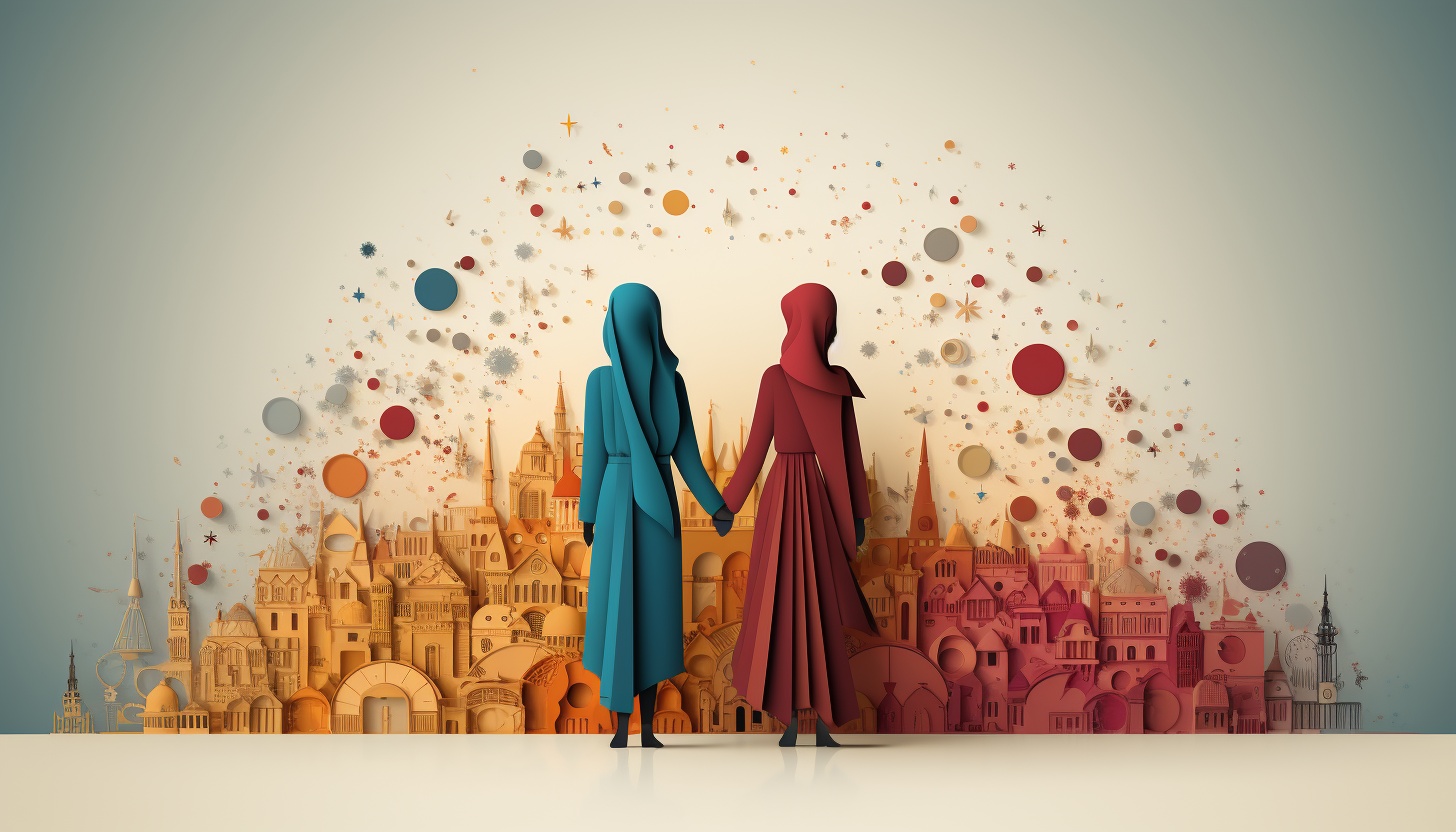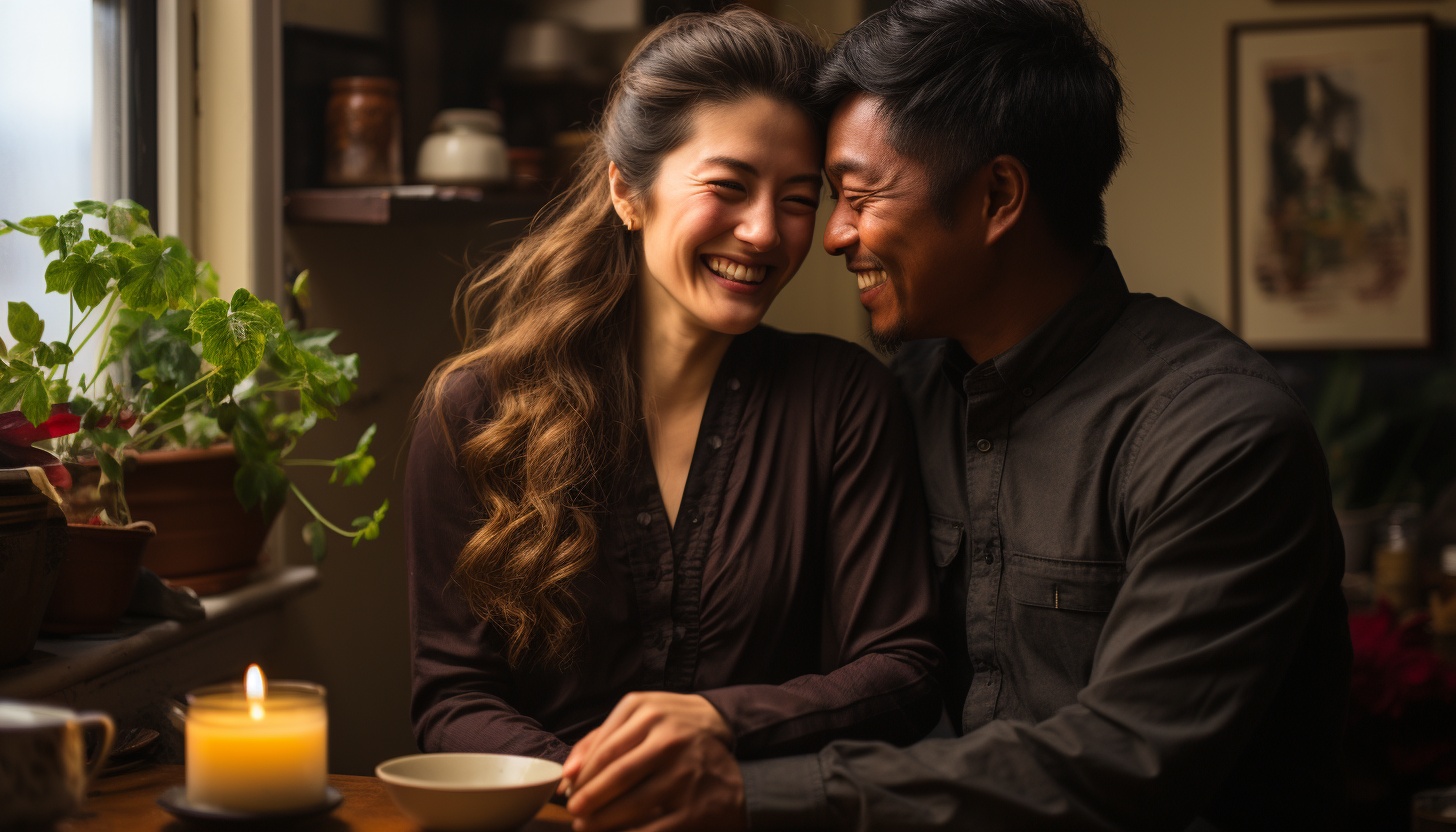
Dating Taboos: Cultural Norms and Practices That Influence Relationship Dynamics
Are you curious about the hidden rules and boundaries that shape our dating experiences?
In this article, we explore dating taboos – those cultural norms and practices that influence the dynamics of relationships.
From traditional gender roles to religious and moral restrictions, these unwritten rules can greatly impact how we navigate love and romance.
Join us as we delve into the fascinating world of dating taboos and uncover the complexities they bring to our modern relationships.
Traditional Gender Roles and Expectations

When it comes to dating, traditional gender roles and expectations can significantly shape relationship dynamics. In many cultures, expectations are placed on men and women in dating and relationships. Men are often expected to take on the role of the pursuer, initiating the first date and making the first move. They’re also expected to be financially stable and provide for their partners.
On the other hand, women are often expected to be more passive and receptive to the advances of men. They’re encouraged to prioritize their appearance and femininity to attract a partner. These traditional gender roles can create power imbalances within relationships, with men seen as the dominant figure and women as subservient.
It’s important to note that these roles and expectations are not universal and can vary depending on cultural and individual factors.
Transitioning into the subsequent section about religious and moral restrictions, it’s worth mentioning that these traditional gender roles and expectations are often reinforced by religious and moral beliefs. Many religions have specific guidelines and expectations for dating and relationships, further influencing the dynamics between men and women.
These religious and moral restrictions can include limitations on premarital sex, cohabitation, and even who individuals are allowed to date or marry. These restrictions are often seen as a way to maintain social order and uphold certain moral values within a community.
Religious and Moral Restrictions

Now let’s delve into how religious and moral restrictions further shape the dynamics of relationships, influencing the behaviors and choices of individuals in dating and romantic partnerships.
Religious and moral beliefs play a significant role in shaping the boundaries and expectations within relationships. For many individuals, their religious or moral values dictate the kind of behaviors and choices that are considered acceptable or unacceptable in a romantic partnership.
In some religious communities, premarital sex is strictly forbidden, and individuals are expected to abstain from any sexual activity until marriage. These restrictions can lead to individuals seeking partners who share the same religious beliefs and values, as they provide a sense of comfort and compatibility in adhering to these moral restrictions.
Additionally, religious and moral restrictions can also influence the decision-making process when it comes to choosing a partner. For example, in certain cultures, individuals may be expected to marry within their own religious or ethnic group, as marrying outside of these boundaries may be seen as a violation of religious or cultural norms.
Furthermore, religious and moral restrictions can also influence the dynamics of a relationship in terms of gender roles and expectations. In some religious communities, there may be strict gender roles that dictate the roles and responsibilities of each partner within the relationship. These gender roles can influence the division of labor, decision-making processes, and power dynamics within the relationship.
Dating Within the Same Social Class

You should consider dating someone within your own social class to ensure compatibility and shared experiences. Dating within the same social class can have significant benefits in terms of understanding each other’s background, values, and expectations. Here are three reasons why dating within your social class can be advantageous:
1. Similar Lifestyle: When you date someone from the same social class, you’re likely to have a similar lifestyle. This means that you’ll have similar financial resources, access to similar opportunities, and similar expectations for your future. This can lead to a smoother and more harmonious relationship, as you’ll both understand each other’s priorities and limitations.
2. Shared Interests: People from the same social class often share similar interests and hobbies. This can make dating within your social class more enjoyable, as you’ll have common ground to connect on. You can engage in activities together that you both enjoy, and this shared interest can deepen your bond and create a stronger connection.
3. Mutual Support: Dating within your social class can provide a sense of mutual support. You’re more likely to understand each other’s struggles and challenges, as you may have faced similar obstacles in life. This shared understanding can create a strong support system within your relationship, where you can rely on each other for emotional and practical support.
Taboos Surrounding Intimacy and Physical Contact

Dating someone within your social class can also influence the taboos surrounding intimacy and physical contact. Cultural norms and practices often dictate acceptable levels of physical touch and closeness in relationships, and these can vary greatly across different social classes.
In some cultures, physical contact between couples may be seen as a private matter and not openly displayed in public, regardless of social class. This could include holding hands, hugging, or even kissing. These taboos may stem from cultural values that prioritize modesty and discretion in public spaces.
On the other hand, in more liberal societies, physical contact between couples may be more accepted and even expected. Public displays of affection, such as holding hands or kissing, may be seen as a normal part of a romantic relationship, regardless of social class.
Additionally, social class can also influence the level of intimacy considered appropriate within a relationship. In some cultures, premarital sex or even discussing sexual topics openly may be highly taboo, regardless of social class. In contrast, in more progressive societies, sexual intimacy may be seen as a natural part of a romantic relationship, regardless of social class.
It is important to note that these taboos surrounding intimacy and physical contact can vary not only across different cultures but also within different social classes within the same culture. Understanding and respecting these cultural norms and practices is crucial in maintaining healthy and respectful relationships.
Interethnic and Interracial Dating Challenges

When entering into interethnic or interracial relationships, individuals may face unique challenges due to cultural differences and societal expectations. These challenges can vary depending on the specific cultures involved, but some common difficulties are often encountered. Here are three key challenges that individuals in interethnic or interracial relationships may face:
1. Communication barriers: Cultural differences can lead to misunderstandings and misinterpretations, making effective communication challenging. Language barriers, nonverbal cues, and differing communication styles can all contribute to difficulties in expressing oneself and understanding one’s partner. It’s important for couples to be patient, open-minded, and willing to learn from each other to overcome these challenges.
2. Family and community acceptance: Interethnic or interracial relationships may face resistance from family members and communities. Cultural traditions and expectations can influence how families and communities view these relationships, leading to disapproval, prejudice, or even rejection. Navigating these dynamics can be emotionally challenging and require open dialogue, education, and empathy among all parties involved.
3. Identity and cultural assimilation: Being in an interethnic or interracial relationship can bring up questions of identity and cultural assimilation. Individuals may grapple with how to balance their own cultural heritage with their partner’s, as well as how to navigate societal expectations and stereotypes. Finding a sense of belonging and creating a shared cultural identity can be a journey that requires open-mindedness, mutual respect, and a willingness to embrace and celebrate differences.
Conclusion
After exploring various dating taboos and cultural norms, it becomes clear that these factors significantly influence relationship dynamics. Traditional gender roles, religious and moral restrictions, social class limitations, and taboos surrounding intimacy all play a role in shaping how individuals navigate dating.
Additionally, interethnic and interracial dating can present unique challenges. By understanding and acknowledging these cultural influences, individuals can engage in more informed and respectful relationships, promoting inclusivity and understanding.






